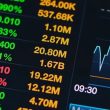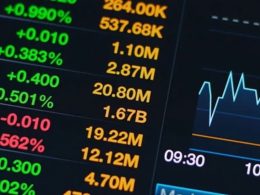by Cullen Roche, Pragmatic Capitalism
There are so many contradictions in the financial world that most of them go totally unnoticed. One thing I’ve noticed lately is that it’s wildly popular to demonize anyone who makes a forecast about the future. Of course, we all make forecasts in the investment business. Anyone who takes a directional bias in any investment portfolio is making a forecast whether they know it or not, yet we see a persistent demonization of anyone who makes a forecast at all.
Take for instance, the way Wall Street’s top strategists forecast year-end targets. We see all sorts of articles this time of year about how a bunch of really smart strategists make specific estimates about where the markets will be in 12 months. And they apply specific numbers. And bloggers just kill them left and right. But of course these numbers are virtually guaranteed to be wrong. Forecasting the exact year-end figure for the S&P 500 is like trying to guess what the exact rain fall will be for the year in 2015 in the USA. We know, with some degree of probability how much rain we might get in any given year, but it’s still very much a rough estimate and no one could guess the precise figure without being very lucky.
The thing is, I doubt a single one of these strategists thinks they can guess the year-end close of the S&P 500. Instead, most of them are saying “well, stocks go up roughly 80% of the time over a 12 month period so I am going to do what anyone with a brain would do and bet that stocks will be higher one year from now”. Then they slap some rough earnings per share math around that and you get some figure that bloggers laugh at. Any Wall Street strategist who tried to pull some permabear nonsense like we see from so many of the laughing bloggers would get fired in a heart beat because being a permabear on human innovation and human output is a losing cause most of the time. Of course, bloggers don’t fire themselves for being permabears (though many should), and in fact, they often become increasingly popular for their bearish views because our biases lead us to worry excessively about things that aren’t actually going to hurt us (like hyperinflation, crashing dollar, US government default, etc).
More importantly, is any of this all that useful? It really just depends on your perspective because the process behind the strategist’s thinking really isn’t that different from the way their critics probably think about the markets. That is, the non-forecasting types, tend to just run some historical backtesting, conclude that stocks generally rise and then they tell everyone to “buy and hold” stocks “for the long-run”. The only difference between the non-forecaster and the Wall Street strategist is that the Wall Street strategists knows that investors ALWAYS make implicit forecasts about the future. And year after year they update their permabull forecast in what is actually a permabullish long-term view that gets boiled down to a series of short-term permabullish views.
The thing is, most of this criticism is surrounded with contradiction. The same people who say forecasting is silly are the same people who basically always recommend a stock heavy portfolio because they extrapolated their backtested results into the future thereby making their own form of a vague forecast. So yes, Wall Street’s year-end targets are silly and should be ignored. But they’re only marginally less silly than those people who make extrapolative long-term forecasts and then laugh at everyone else making forecasts.
Copyright © Pragmatic Capitalism












